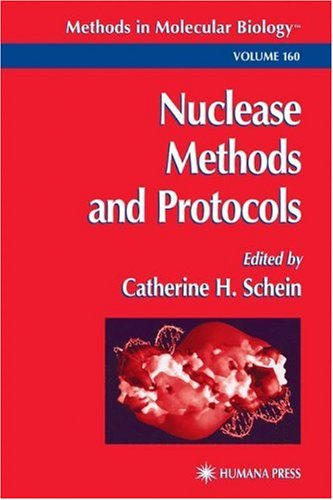

Most ebook files are in PDF format, so you can easily read them using various software such as Foxit Reader or directly on the Google Chrome browser.
Some ebook files are released by publishers in other formats such as .awz, .mobi, .epub, .fb2, etc. You may need to install specific software to read these formats on mobile/PC, such as Calibre.
Please read the tutorial at this link. https://ebooknice.com/page/post?id=faq
We offer FREE conversion to the popular formats you request; however, this may take some time. Therefore, right after payment, please email us, and we will try to provide the service as quickly as possible.
For some exceptional file formats or broken links (if any), please refrain from opening any disputes. Instead, email us first, and we will try to assist within a maximum of 6 hours.
EbookNice Team

Status:
Available0.0
0 reviewsNucleases, the enzymes that cleave and shape nucleic acids, are key regulators of cellular metabolism. Angiogenesis and the unfolded protein response are just a few instances of important intra- and extracellular pathways regulated by nucleases. In Nuclease Methods and Protocols, researchers at the forefront of academic research and pharmaceutical drug development from four continents summarize their recent results. Their projects involve nucleases in many different areas of medicine and biology, ranging from protein structure and folding, to DNA repair, to developing cures for insidious diseases such as cystic fibrosis, AIDS, and cancer. Each chapter contains a minireview of a specific nuclease or nuclease-related theme, a discussion of why and when to use the assays described, and often, an explanation of how the assay was developed. The authors describe their most valuable methods for determining the mode of action, structure, interaction with other molecules, and physiological role of nucleases. Detailed step-by-step instructions and notes on avoiding pitfalls help ensure readily reproducible results.
Comprehensive and highly practical, Nuclease Methods and Protocols offers
both novice and experienced researchers a deeper understanding of the importance of nucleases in cell metabolism, growth control mechanisms, and, increasingly, in
diagnostics and therapeutics.